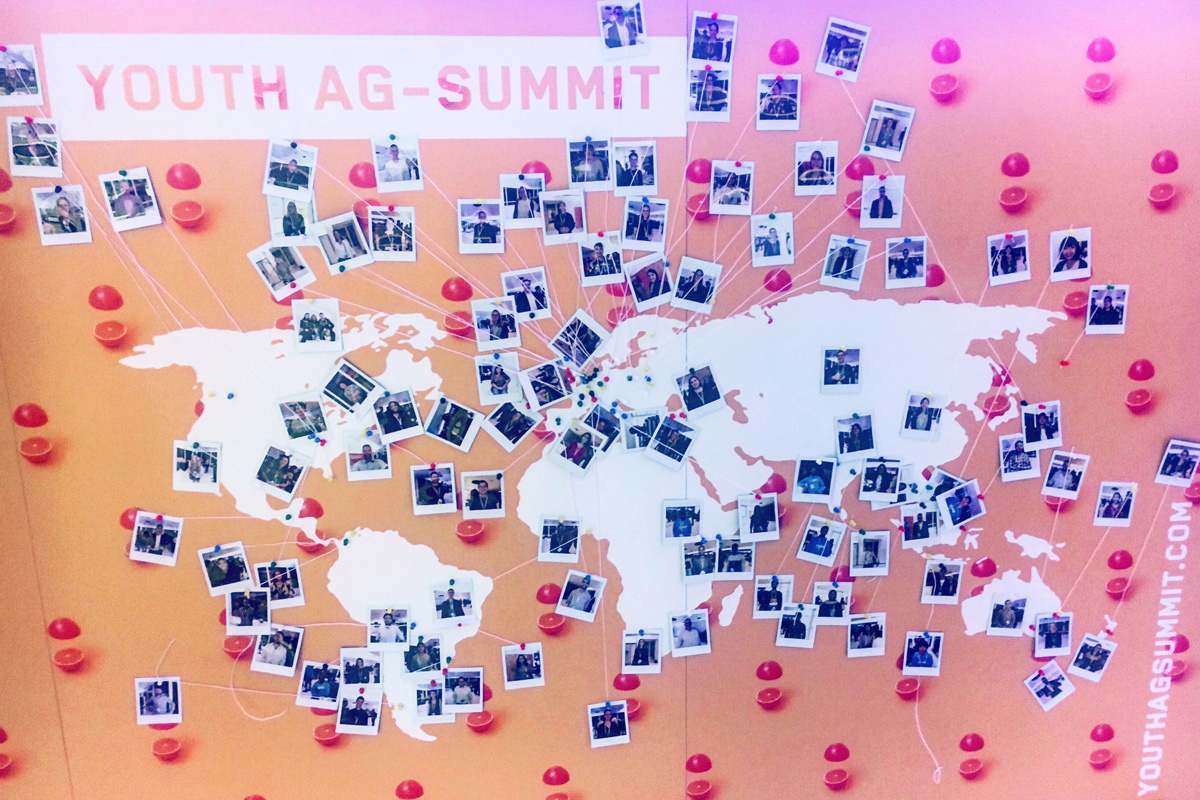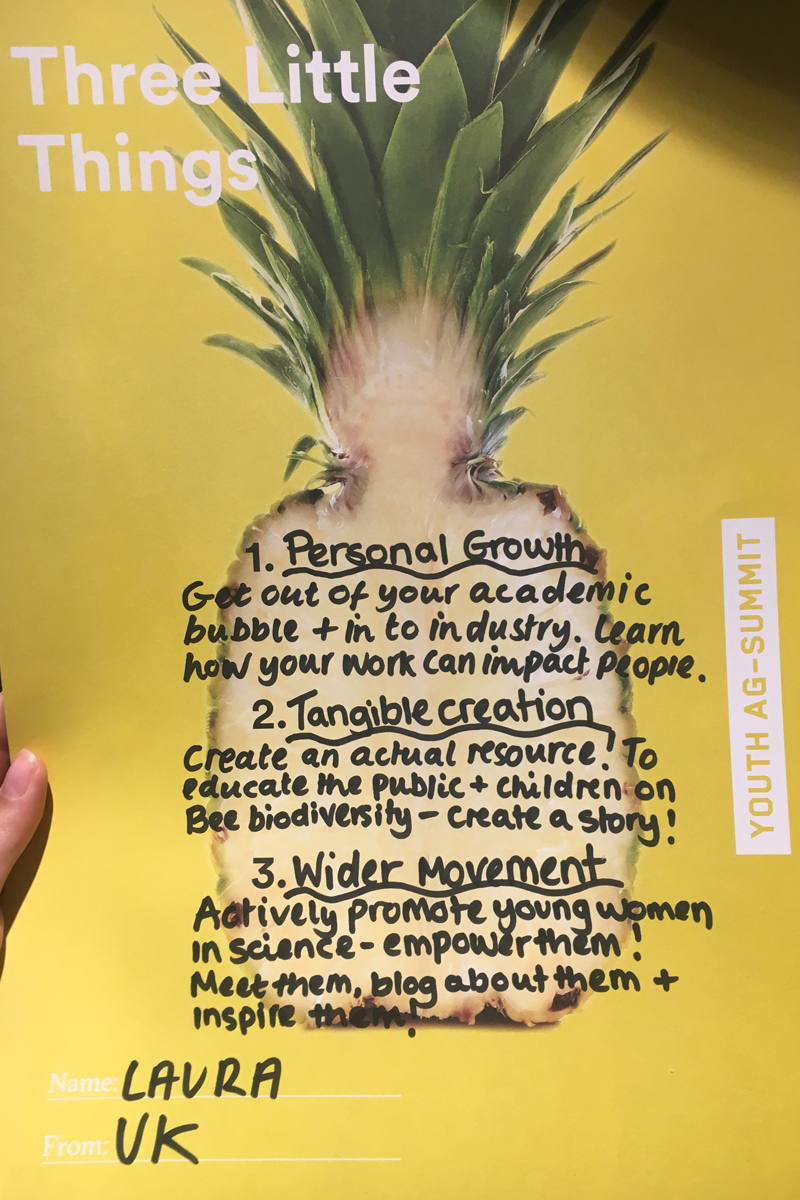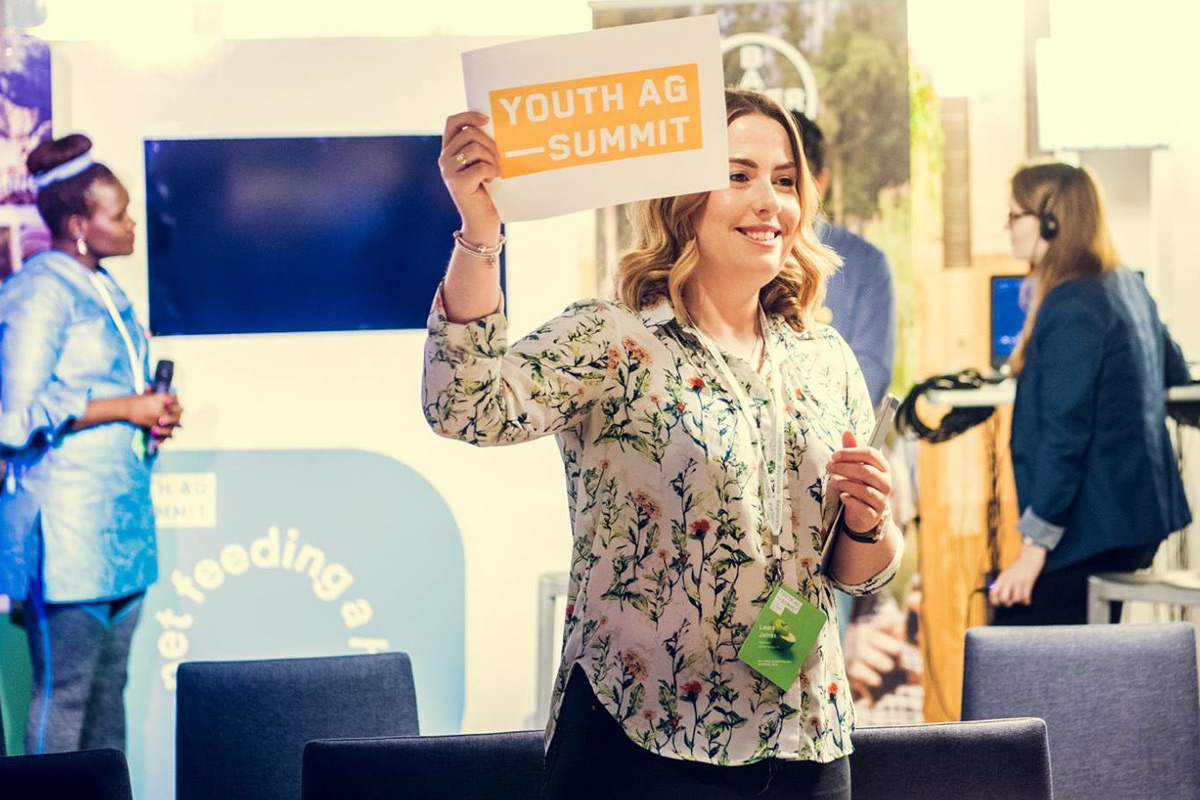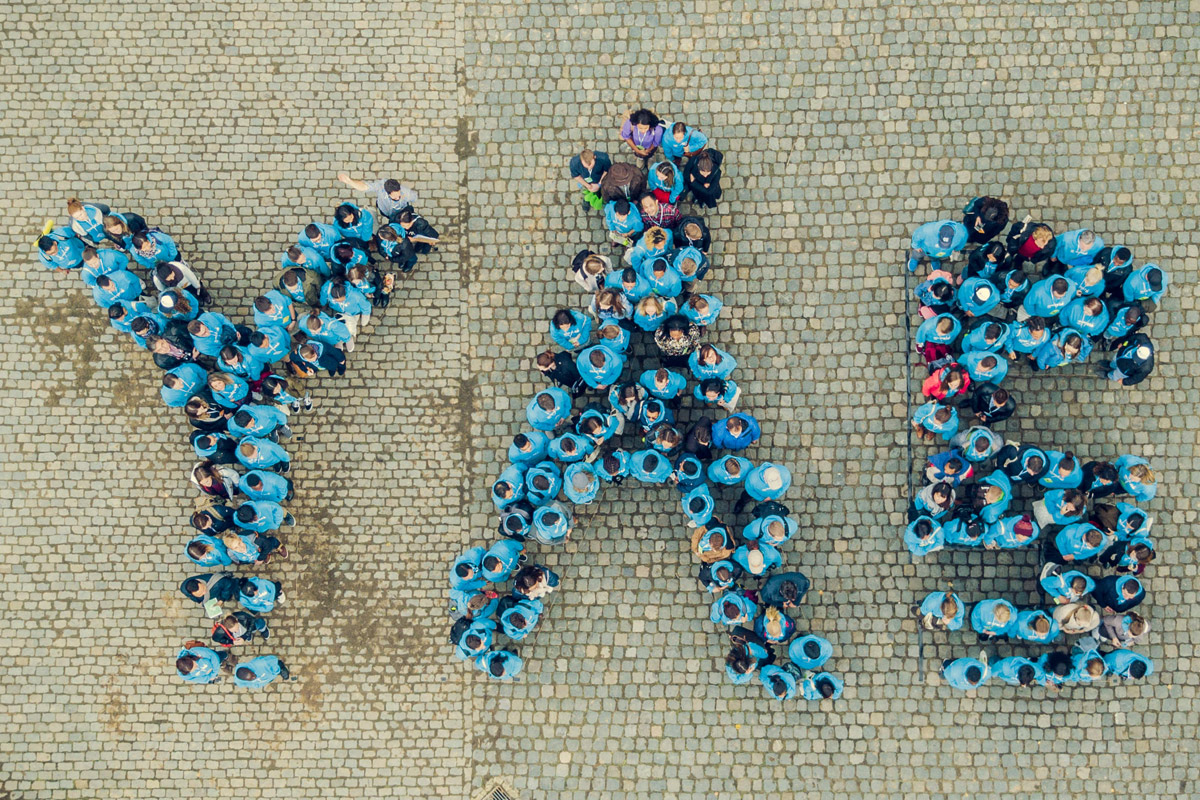The big picture: using wildflower strips for pest control
I have just returned from the most exhilarating four days in Brussels where I was engaged to manage the social media (among other things) for 100 impassioned and empowered young “agvocates”, writes Laura James.
These agvocates, aged 18 to 25 and from 49 countries (above, with mentors), had been selected via an essay competition from more than 1000 hopeful applicants to attend the Youth Agricultural Summit, a biennial event sponsored by Bayer, the life sciences group, and by two local agricultural associations, Groene Kring and FJA.

Global meet: 100 agvocates, aged 18 to 25 and from 49 countries, gathered in Brussels for YAG
The agvocates were determined to speak up and out about the future of agriculture because THEY were going to change the world, and before it was too late.
Already more than 1 billion people do not have enough to eat and, by 2050, the world population will have risen from its current 7.5 billion to around 10 billion. Sustainable food security for all demands innovation, collaboration and experimentation, and it will be impossible without a new generation of youth determined to transform agriculture in fresh ways.
“How DO we feed a hungry planet?” was the theme.
The summit challenged teams of agvocates to create practical solutions to achieve 5 of the 17 Sustainable Development Goals of the United Nations; it chose goals relating to the areas of gender equality, quality education, industry innovation and infrastructure, climate action, and responsible consumption and production. Each of the selected goals links the impact its area can have on agriculture to the overall aim of achieving zero hunger. The top three projects received seed funding from Bayer Crop Science.
The summit’s mission is to inspire action so that every individual becomes an active instrument of change in their community, town, country or even globally. This is embodied by the agvocates’ “Three Little Things”. These are actionable, achievable aims that they will undertake following the summit to continue the momentum towards the goal of food sustainability and zero hunger.

Agvocates created personal lists of local actions for global good to pursue after the summit
My role, as one of three “harvesters” at the summit, was to “be the eyes on the ground”, recording and observing the delegates as they worked towards their goals, documenting their personal and collaborative growth through quotes, insights and media. This content engaged a wider, global community with the summit via social media channels throughout the week.
Inspirational speakers were invited from a wide array of agriculture and innovation platforms. Liam Condon, a Bayer board member, urged agvocates to drive technological and social innovation. “We have a social responsibility,” he counselled, not just in the larger, wealthier countries, but to find even “small solutions for small holders” in developing countries, too.
I was reminded that every day we should strive to contribute to something bigger than ourselves.
Adrian Percy, who leads research and development at Bayer Crop Science, advised that, as a society, “we have lost our connection with food production”. It is vital that we get that back, he said. From Adrian, I got a sense that an impending agricultural revolution will not only be possible, but necessary to secure food sustainability, driven by data, technological advance and collaboration.
Hlami Ngwenya preached; and the agvocates cheered. “Make agriculture sexy again”; and the agvocates cheered again. Hlami is Manager for Communications and Knowledge at the Food, Agriculture and Natural Resources Policy Analysis Network (FANRPAN), based in Pretoria and charged with ending hunger in Africa
From Hlami, I learned that we need to show young people that there are plenty more jobs in agriculture than being a farmer. Agvocates from developing countries noted that, at home, being a farmer was a poor livelihood, with no prestige. This image needs to change if new generations are to be attracted to the sector.
Achim Dobermann, Director of Rothamsted Research, cautioned that “the world economy doubles in size every generation and so will our challenges”. To solve this, he urged: “We need to make sure that more and more of our great intellectual potential gets turned into real world solutions to problems”.
This message resonated with many advocates. I got a sense that, for them, change needs to be occurring more quickly than it is. The take-home message for me was that, too often, the bridge between the brilliant science, in institutes all over the world, and agricultural tools and practices is not being built quickly enough or stretching far enough.
This is a real problem for future food sustainability. As Achim says, we must inspire scientists to solve real world problems, and faster. I question whether science is always serving its purpose, or what truly is that purpose, if it is not always sufficiently driving real agricultural advancement globally?

That's me, group leader this time for a "marketplace" afternoon (Credit: Youth Ag-Summit)
To my surprise, most of the agvocates were not scientists. My preconceived notion of the individuals that would “change the world” was that they would be scientists, just like me and those I work with day-to-day at Rothamsted.
In fact, the agvocates were diverse leaders in a wide range of fields. Innovators from all over the world, fish farmers, agronomists, teachers, nutritionists, dairy farmers, digital experts. These were the people on the ground in their countries making a real difference.
When I’m in the lab, in the field or absorbed in the minute details of my science on a day-to-day basis, it can be easy to feel far removed from the monumental challenges that, globally, are being faced and tackled by people such as these agvocates.
We can easily lose sight of the global scale of these issues. The issues outside of food security in YOUR country, gender equality in YOUR society, climate impact in YOUR region, the access YOU have to a quality education. For me, the Youth Agricultural Summit shattered this sometimes safe, far removed view. These are not someone else’s issues, somewhere else.

People power: delegates to the Youth Agricultural Summit say "YAS" to ending world hunger
Caleb Harper, Director of the Open Agriculture (OpenAG) Initiative at MIT Media Lab, highlighted this cosiness in his speech as he urged delegates to “go for fearless”, to “not respect the rules” and to “be comfortable pursuing what you know is interesting”. His key message was of innovative collaboration, because “if you have a big problem, you need a lot of people to try to solve it. You cannot close yourself off”. These issues are our issues, all of us. Today. Right now.
Personally, the summit taught me to WAKE UP; to GET OUT of the “box” that I had put myself into as a scientist; to BREAK DOWN cultural barriers; to COLLABORATE, COMMUNICATE and STAND UP for change.
The time has come for a new generation of agvocates, who innovate, who collaborate, who share technologies and ideas because, at the end of the day, they understand that it is global, not individual advancement that will allow us to reach the goal of zero hunger.
I left Brussels realising that I need to be one too!